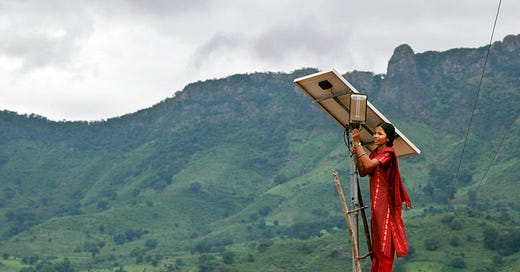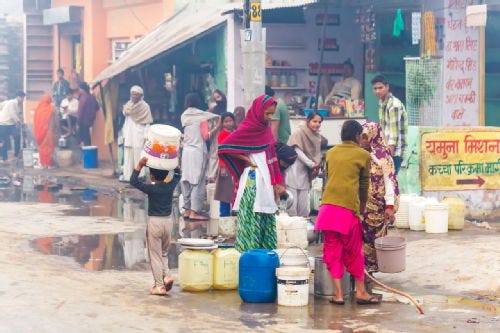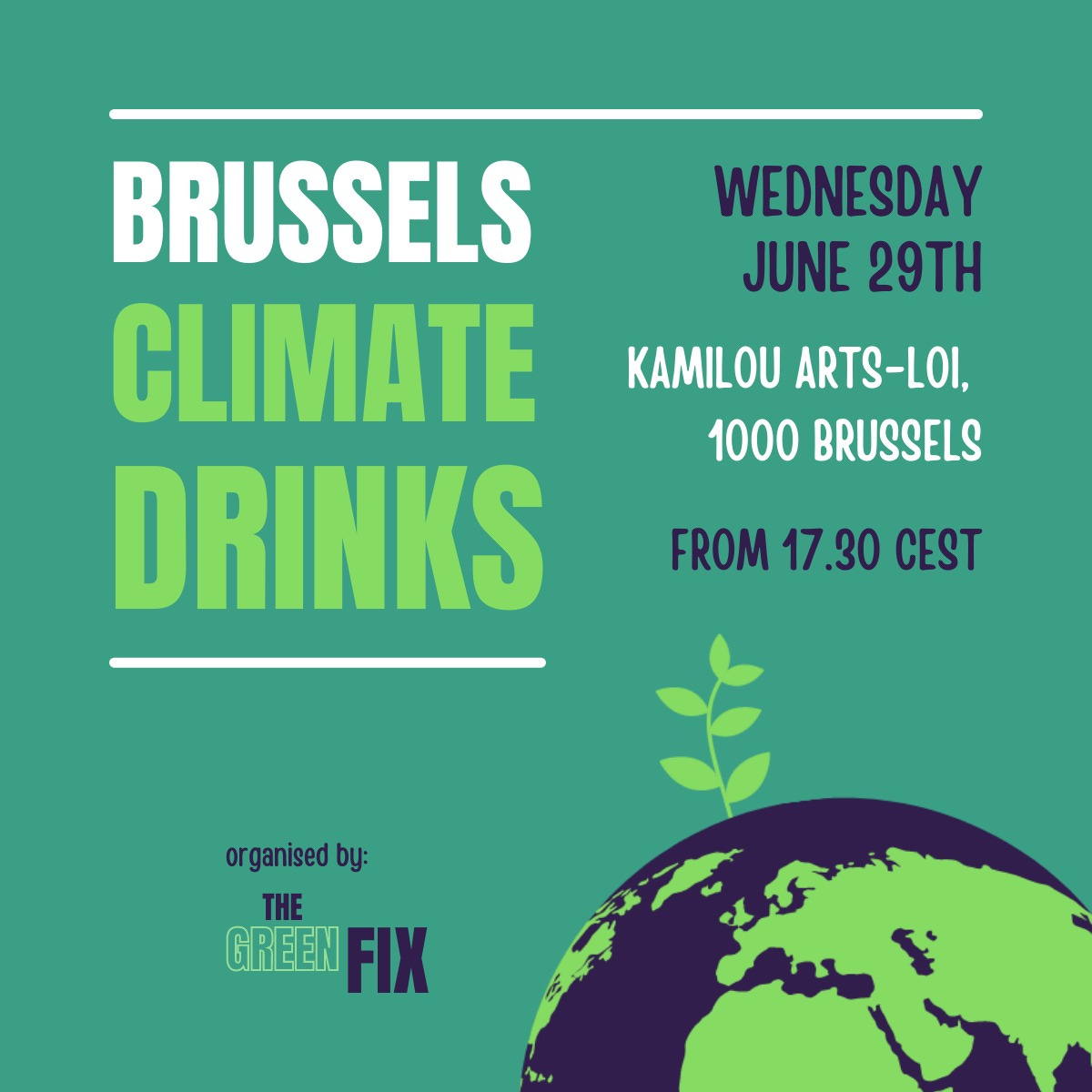3am. Another man explained to me today how the climate crisis works.
I sit up. Consider replying to him and getting it over with. Consider trying to sleep.
The internet told me you shouldn’t lie in bed if you can’t sleep. It’s 30 degrees anyway.
I’m thinking, in a scattered way, about the areas of India and Pakistan that are 50 degrees Celsius. I watch Instagram Reels about the EU holding back climate legislation. I think about the random guy that tried to walk beside me on the way home from the party because he was ‘bored.’
Suddenly I feel strongly that I have thoughts to fill pages and pages so I seize my laptop and open a document and stare at the white screen. And stare and stare. And nothing happens.
I’m doing it again. Mistaking stress and tiredness for something meaningful. Trying to find the words for this thing, this… this… simmering something-ness inside me.
Maybe I’m just hormonal. Maybe it’s the buried frustration of every woman who has been told to squash their true feelings and thoughts for a lifetime of keeping conversations pleasant. (I hear it in my head now. Wow, calm down Cass, just trying to have a conversation).
Maybe it’s the tension of balancing the hope and the fear and the exhaustion and the exhilaration of seeing the world change at breakneck speed, in strange and unfamiliar ways - and still not fast enough.
Maybe it’s that love thing again.
Building a sustainable future is a relationship. The planet is my other half. In the beginning stages it’s hard to stop worrying about how long you’ll have together, about whether you’re going to screw it up. You imagine Hollywood-style gestures of affection, taking to the streets and shouting about how much you care.
But if I want this relationship to last, I have to centre myself in the now. Have to pace myself. Have to recognise which battles and conversations I will devote my energy to. Have to know that the world’s injustices don’t own my state my mind.
If I really love the planet, then I can put my laptop away and go to sleep. I can tolerate it. It’s 3am.
If you like this newsletter, please help me by sharing it using the button here:
What’s Going On?
It’s hot in Europe.
Relevant: Solar power floods Europe’s grids in heatwave.In the hottest city on earth, women are bearing the brunt of climate change.
Relevant: Why are the world’s heatwaves getting more intense?
EU lawmakers form coalition to block gas and nuclear being labelled as “green” energy.
Useful: Help get the greenwashing voted down in Parliament next week.Lots of companies are jumping on the net-zero pledge bandwagon, without any concrete plan.
Relevant: In case any companies are reading this, here’s how to get to net-zero.The youth activists going to European courts to block a law that supports fossil fuel investors.
Useful: What’s the Energy Charter Treaty and why is it a big deal?Finland sets out the world’s most ambitious carbon target in law.
Relevant: Colombia’s new president pledges to keep fossil fuels in the ground.
Focus On… Gender and Climate Change
Guest writer Mansha Marwah uses the case of urban India to show why the climate crisis is a gender issue.
Climate change is not gender neutral and it affects women disproportionately. Let’s look at the case of urban India, where these effects are already being felt with regards to water.
The gendered effects of climate change
A 2011 census finds that nearly 40% of households in urban areas in India have no access to a clean water supply within their homes, and are dependent on other (often shared) sources. These are usually households in urban slums belonging to people of a lower socio-economic background.
Women bear the brunt of water scarcity because they are responsible for finding water for their family. They are expected to balance paid work and unpaid household work, dealing with what some have termed a “double burden”.
[Useful: What is the “double burden”?]
As one woman from an urban slum in Delhi summarised:
‘‘Only women go to fetch water. Our husbands always think about their work and job, but they never think about collecting water. They of course need water, but they do not have the headache of collecting water. They do not want to know which types of problems are being faced by ladies in fetching water.”
The problems she refers to include gendered violence - both emotional and physical - as women have to venture through dangerous spaces in the early hours of the day to find water with a strong chance of being harassed, abducted or raped.
The labour also has detrimental effects on women’s health, decreasing productivity and the intensive and time-consuming unpaid labour often prevents women from getting better paid work, such as domestic work, one of the main paid employment opportunities for poor urban women. Water problems relating to access make it hard for women to earn their living, which in urban slums could be essential for the functioning of households.
Some women delegate unpaid work to their children (typically young girls), who can help in household tasks such as water collection while their mothers go to work. Many of these girls then drop out of school to fulfil these tasks at home, and as a result are denied an education.
It is estimated that Indian women and girls (in urban and rural areas combined) spend 16.4 billion hours in unpaid care work daily, and with the increasingly severe impacts of climate change and increase in water scarcity are felt, this is likely to increase.
Class matters, too
These effects also differ according to other factors such as socio-economic class. Richer urban residents also might face water issues due to scarcity, but higher-income women are in a position to hire household help (usually women of a lower socio-economic background) to manage their water responsibilities.
Often these helpers have to simultaneously manage their own households’ water responsibilities.
This problem is not just in India - around the world, women face the burden of household duties in the face of the climate crisis, while policies fail to reflect this.
Climate change affects different women in different ways - and climate policies should reflect that.
We need gender responsive policies.
This means urban climate policies should respond to the needs and capacities of all citizens, women and men, and include poor and marginalised groups.
If policies or projects are implemented without women’s meaningful participation and a gender sensitive outlook, it can increase existing inequalities and decrease effectiveness.
For example, public transport policies could reflect the need for more street lights, night buses with request stops and safe cycle lanes, to increase the accessibility of public transport, cycling and walking to women by reducing the risk of these transport options.
[Useful: What are gender sensitive climate policies?]
The gendered impact of climate change is not confined to the Global South, and researchers have demonstrated these links in rich industrialised countries, including EU member states. They have shown that there are gendered differences in the consequences of climate change, including transport and energy use.
So a gender responsive approach should also apply to industrialised economies in the Global North. The full integration of social and gender issues into climate policy maximises options for climate change mitigation, with the added resilience of women and communities.
Studies show that women play a critical role in the response to climate change, due to their local knowledge and leadership e.g. leading sustainable practices at the household and community level. So it’s time that policies were built to reflect that.
By the way….
We’re hosting an event! Join us 2 July at 10 BST / 11 CEST for an online workshop with London Climate Action Week on a crash course on fixing the planet.
***
The newsletter is volunteer-run. If you find this newsletter useful, please consider tipping a virtual coffee to keep us running and keep the team sane.
So Now What Do I Do?
LEARN MORE
TODAY! Tune into this lunchtime talk at 1.30pm CEST with Cass Hebron (me lol) on sustainable activism. Free tickets available if you reply to this email.
Read: Why the EU Green Deal needs ecofeminism, by the European Environmental Bureau.
Join this two-day free online course on building climate resilience by the Acumen Academy, 28-29 June.
TRY SOMETHING NEW
Apply to The Climate Resilience Project’s new weekly online community focused on building resilience in activism. Deadline 26 June.
Climate activists around the world can apply for these super cool Climate Action Summits before 30 June.
Multimedia storytellers can apply for the weeklong Jackson Wild Fellowship in Austria before the 1 July.
CHANGE THE SYSTEM
Sustainable entrepreneurs under 30 can apply for Youth Environment Europe’s new mentorship programme before the 30 June.
Learn how to support local activists & promote environmental justice at COP27 in Egypt in this online training by Gastivists Collective. Deadline 30 June.
By the way…
We’re holding drinks! Please RSVP via Eventbrite if you’re coming because there’s a lot of interest and I have lost control of my inbox.
Stay in the loop
You can connect with me on Instagram, Twitter and LinkedIn. You can also follow the Green Fix Twitter and LinkedIn page here for more climate opportunities.
Know someone interested in environmental issues? Forward this email to them - we want to reach people who care about doing more for the planet, with your help.














